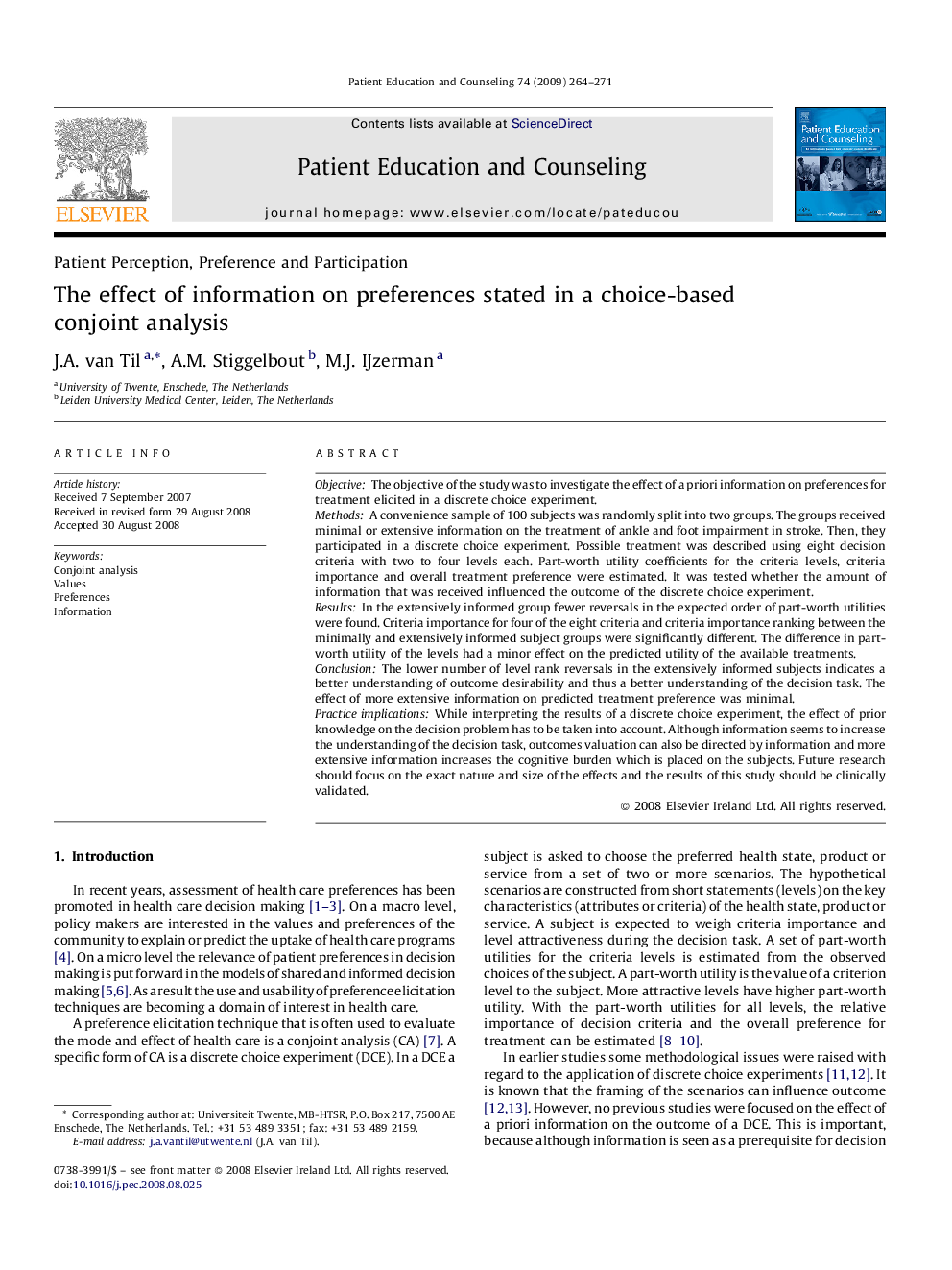| Article ID | Journal | Published Year | Pages | File Type |
|---|---|---|---|---|
| 3815875 | Patient Education and Counseling | 2009 | 8 Pages |
ObjectiveThe objective of the study was to investigate the effect of a priori information on preferences for treatment elicited in a discrete choice experiment.MethodsA convenience sample of 100 subjects was randomly split into two groups. The groups received minimal or extensive information on the treatment of ankle and foot impairment in stroke. Then, they participated in a discrete choice experiment. Possible treatment was described using eight decision criteria with two to four levels each. Part-worth utility coefficients for the criteria levels, criteria importance and overall treatment preference were estimated. It was tested whether the amount of information that was received influenced the outcome of the discrete choice experiment.ResultsIn the extensively informed group fewer reversals in the expected order of part-worth utilities were found. Criteria importance for four of the eight criteria and criteria importance ranking between the minimally and extensively informed subject groups were significantly different. The difference in part-worth utility of the levels had a minor effect on the predicted utility of the available treatments.ConclusionThe lower number of level rank reversals in the extensively informed subjects indicates a better understanding of outcome desirability and thus a better understanding of the decision task. The effect of more extensive information on predicted treatment preference was minimal.Practice implicationsWhile interpreting the results of a discrete choice experiment, the effect of prior knowledge on the decision problem has to be taken into account. Although information seems to increase the understanding of the decision task, outcomes valuation can also be directed by information and more extensive information increases the cognitive burden which is placed on the subjects. Future research should focus on the exact nature and size of the effects and the results of this study should be clinically validated.
